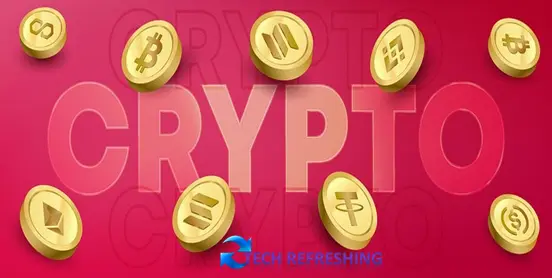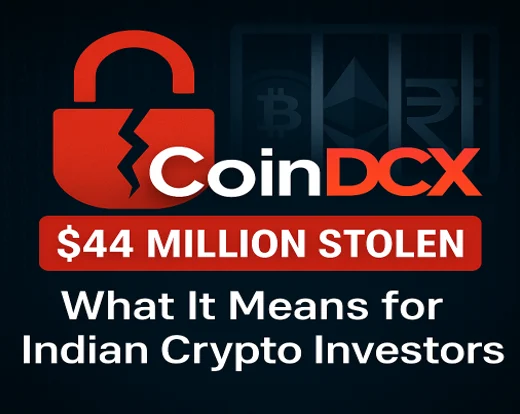
Cryptocurrency is a type of digital currency that is not controlled by central banks and is protected by cryptographic methods. It has gained widespread recognition in recent times, with numerous individuals investing in prominent cryptocurrencies such as Bitcoin, Ethereum and Litecoin. Transactions in cryptocurrencies are recorded on decentralized platforms that employ blockchain technology, ensuring security and transparency.
Importance of Understanding Crypto Jargon
Understanding the jargon and terminology used in the cryptocurrency industry is essential for anyone looking to invest, trade, or use cryptocurrencies. Without a clear understanding of these terms, it can be challenging to navigate the world of cryptocurrency and make informed decisions. For instance, understanding the difference between a hot wallet and cold storage, knowing how to read candlestick charts, and understanding market cap can help traders make better investment decisions.
Overview of the Article
This article aims to offer a comprehensive handbook to frequently used phrases and terms in the cryptocurrency industry. It will delve into essential terminologies related to blockchain, cryptocurrency, trading, and security. The goal is to equip readers with a deeper understanding of the language employed in the cryptocurrency market, thereby allowing them to navigate it more confidently.
Common Cryptocurrency Terms
A. Blockchain

A blockchain refers to a decentralized digital ledger that logs transactions across various computers. Each block within the chain contains a list of transactions that cannot be modified once added to the blockchain. This characteristic makes the blockchain a transparent and secure means of validating and documenting transactions.
B. Cryptocurrency

A cryptocurrency denotes a digital or virtual currency that employs cryptography as a security measure. It operates independently of central banks and is not susceptible to government intervention or control. Cryptocurrencies are traded on decentralized platforms, with their worth determined by market dynamics of demand and supply.
C. Bitcoin

Bitcoin, launched in 2009 by an anonymous individual or group under the pseudonym Satoshi Nakamoto, is the original and most renowned cryptocurrency. It functions on a decentralized network and employs blockchain technology to authenticate and log transactions. The value of Bitcoin is contingent upon market conditions of demand and supply and is presently the most valuable cryptocurrency.
D. Altcoin
Altcoin refers to any cryptocurrency other than Bitcoin. The market hosts thousands of altcoins, each offering unique features and traits. Some notable altcoins include Ethereum, Litecoin and Ripple.
E. Wallet
A wallet refers to either a digital or physical apparatus that preserves a user’s cryptocurrency. It allows for the sending and receiving of coins and tokens. Various wallet options exist, including software wallets, hardware wallets, and paper wallets.
F. Mining
Mining pertains to the act of validating transactions on a blockchain network and appending them to the blockchain ledger. Miners leverage high-powered computers to resolve intricate mathematical problems, receiving newly minted cryptocurrency as compensation. Mining is critical to the operation of a blockchain network, guaranteeing the precise authentication and documentation of transactions.
G. Nodes
Nodes refer to computers or devices that establish connections to a blockchain network. They are capable of verifying transactions, preserving a copy of the blockchain and communicating with other nodes within the network. Nodes are indispensable components of a blockchain network, as they guarantee the security and transparency of the network.
H. Private Key
A private key is a confidential code that authorizes access to a user’s cryptocurrency wallet. It is an exclusive set of alphanumeric characters that must remain confidential and secure. Possession of a user’s private key allows access to their cryptocurrency wallet, enabling the transfer of their funds.
I. Public Key
A public key is a code that enables receipt of cryptocurrency. It is a distinct combination of letters and numbers that is openly available and can be shared with anyone. To receive cryptocurrency, a user discloses their public key to the sender.
J. Smart Contracts
Smart contracts are contractual agreements with the terms encoded in lines of code, which self-execute once the pre-set conditions are met. They function on a blockchain network, automatically fulfilling the contract’s terms without the need for intermediaries. Smart contracts improve efficiency and security by automating processes and ensuring compliance with the agreed-upon terms.
Trading Terms
A. Exchange
An exchange is a platform that enables users to buy and sell cryptocurrencies. They may be either centralized or decentralized, and typically charge a fee for their services. Popular exchanges include Coinbase, Binance and Kraken.
B. Market Cap
Market capitalization, commonly known as market cap, is the total value of a cryptocurrency calculated by multiplying the current market price by the total number of coins in circulation. It is a crucial metric for investors as it provides an indication of the cryptocurrency’s overall size and popularity.
C. Buy Orders
On an exchange, a buy order refers to a user’s request to purchase a particular cryptocurrency at a set price. Such orders remain active on the exchange until they are either fulfilled or canceled by the user.
D. Sell Orders
A sell order is a user’s request to sell a particular cryptocurrency at a specific price on an exchange. Sell orders remain active until they are either executed or canceled.
E. Order Book
An exchange’s order book displays all the active buy and sell orders for a particular cryptocurrency, providing insight into the current liquidity and market depth.
F. Candlestick Charts
A candlestick chart visually represents the price changes of a cryptocurrency during a specific time frame. Each candlestick in the chart represents a particular period and displays the opening, closing, high, and low prices of that period. Traders frequently use candlestick charts to analyze the price trends and formulate their trading decisions.
G. Bull and Bear Markets

A bull market denotes an upward trend in prices and optimistic market sentiment, whereas a bear market refers to a downward trend in prices and pessimistic market sentiment. These terms are commonly used to characterize the general trend of the cryptocurrency market.
H. HODL
HODL is a term that emerged from a misspelling of the word “hold” in a Bitcoin forum post. It has now become a popular expression in the cryptocurrency community, signifying the act of holding onto a cryptocurrency for an extended period instead of selling it. HODL is typically used as a strategy by long-term investors who have faith in the future potential of a particular cryptocurrency.
Security Terms
A. Cold Storage
Cold storage refers to storing cryptocurrencies offline, away from any internet-connected device, in order to protect them from hacking and theft. Examples of cold storage include hardware wallets, paper wallets, and offline computer wallets.
B. Hot Wallet
A hot wallet is a type of cryptocurrency wallet that is connected to the internet, making it more vulnerable to hacking and theft. These wallets are commonly used for frequent transactions and trading since they provide quick access to cryptocurrencies.
C. Multi-Signature
A security method known as multi-signature or multisig requires numerous signatures or authorizations in order to perform a transaction. High-value transactions frequently use it to add an extra layer of security, making it harder for thieves to seize control of the funds.
D. Two-Factor Authentication
Two-factor authentication, or 2FA, is a security feature that mandates users to present two different forms of identity to access their account. Typically, users are required to enter a password and a unique code that is sent to their phone or email. 2FA is an essential security measure for bitcoin exchanges and wallets since it helps to prevent unauthorised access to accounts.
E. Phishing
Phishing refers to a cyber attack where attackers try to deceive users into revealing their sensitive information, including login credentials or private keys. These attacks are usually conducted using fake emails or websites designed to appear authentic. Phishing is a significant risk in the cryptocurrency industry, and users must always remain vigilant and use secure websites and communication channels.
Conclusion
This article serves as a guide for those who are interested in cryptocurrencies by explaining essential crypto jargon. The terms covered include those related to blockchain technology, trading, and security such as blockchain, cryptocurrency, wallet, exchange, market cap, buy and sell orders, cold storage, hot wallet, and phishing.
Importance of Understanding Crypto Jargon
Comprehending crypto jargon is crucial for individuals who wish to invest in or trade cryptocurrencies. It enables effective communication with other investors and users, leading to informed investment decisions. Moreover, it assists in navigating the complicated landscape of cryptocurrencies and safeguarding oneself against security risks such as cyber-attacks.
Resources for Further Learning
If you are interested in learning more about cryptocurrencies and blockchain technology, there are many resources available online. Some popular websites for learning about cryptocurrencies include Coindesk, CoinMarketCap, Techrefreshing and CryptoSlate.
You can also join online communities such as Reddit’s r/CryptoCurrency or Twitter’s #CryptoTwitter to stay up to date with the latest news and trends in the industry. Finally, it is always a good idea to read whitepapers and other technical documents related to specific cryptocurrencies to gain a deeper understanding of their underlying technology and potential.
Disclaimer
The information presented in this Blogpost is solely for educational and informative purposes and should not be misconstrued as investment, financial or legal advice. Cryptocurrencies are a highly unstable and speculative market and their worth is susceptible to substantial fluctuations. Therefore, it is advisable to conduct personal research and seek counsel from qualified experts before making any financial decisions.







